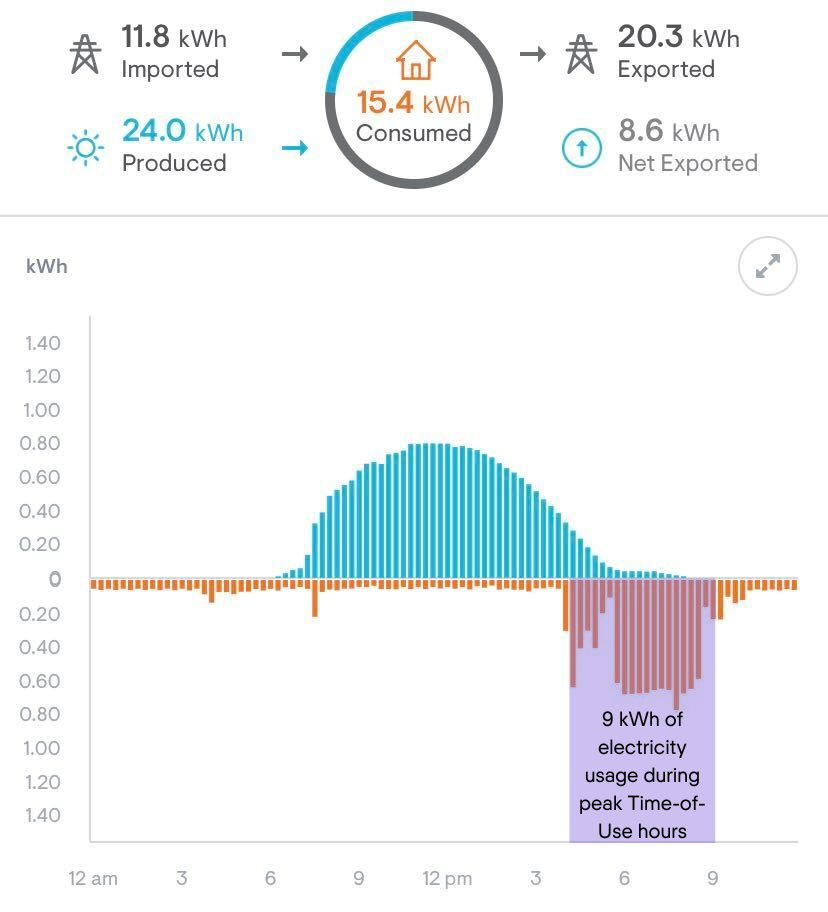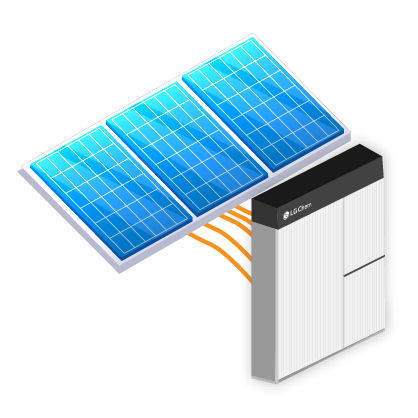How Many Solar Batteries Are Needed to Power a House?
With net metering policies under attack and grid outages increasing in frequency and duration, it’s becoming more and more beneficial to pair battery storage with solar panels.
But exactly how many solar batteries does it take to power a house? The answer depends on a few things, including your energy goals, the size and type of batteries you’re using, and the size of the load you want to power.
In this article, we’ll explore the three most common reasons for investing in battery storage and how to estimate how many batteries you need to achieve your energy goals.
Compare binding battery quotes from trusted installers near you.
How many batteries do I need for solar?
Grid-connected solar systems typically need 1-3 lithium-ion batteries with 10 kWh of usable capacity or more to provide cost savings from load shifting, backup power for essential systems, or whole-home backup power.
According to a 2022 study by the Lawrence Berkeley National Laboratory, a solar system sized for 100% energy offset with a single 10 kWh battery is enough to power essential household systems for 3 days in virtually all US counties and times of the year. When heating and cooling are included in the backup load, a home needs a larger solar system with 30 kWh of storage (2-3 lithium-ion batteries) to meet 96% of the electrical load.
The exact number of batteries you need depends largely on your energy goals. So, let’s take a look at how many solar batteries it takes to achieve the three most common energy goals.
Related reading: The 8 Best Solar Batteries of 2023 (and How to Choose the Right One For You)
Goal 1: Cost savings from load shifting
In areas with unfavorable or non-existent net metering policies, battery storage is crucial to maximizing the energy cost savings of home solar. For example, under California’s NEM 3.0 Solar Billing, it’s far more cost-effective to store and use your solar electricity (a strategy known as load shifting) than to export it to the grid for little-to-no compensation.
If you are strictly interested in load shifting and have no need for backup power, a single 6-10 kWh consumption-only battery will typically suffice since you only need enough usable capacity to avoid buying grid electricity at peak time-of-use rates.
What is a consumption-only battery?
A consumption-only or “no-backup” battery is a new type of energy storage system that provides all the load-shifting capabilities of a traditional solar battery but is not capable of providing backup power when the grid goes down. Without the equipment, programming, and labor that enable backup power, consumption-only batteries typically cost around two-thirds the price of a traditional backup battery and therefore offer a greater return on investment.
Goal 2: Backup essential systems
Perhaps the most common and well-known reason to pair solar and battery storage is to provide backup power during grid outages.
Solar-only systems are typically shut off during grid outages to prevent the backflow of electricity from harming utility lineworkers and thus do not provide backup power. Adding battery storage not only allows you to store kWhs for evenings and outages; it also allows your solar system to remain active and productive when the grid goes down.
Most home battery systems are configured to power a select number of essential systems, like lights, Wi-Fi, TV, medical devices, refrigeration, and other kitchen appliances. As noted above, the Berkeley Lab found that a solar system designed to produce 100% of your annual electricity consumption and a single 10 kWh battery can power essential systems during a 3-day outage for most US households.
It’s worth noting that backup batteries can also provide energy cost savings through load-shifting, although the higher upfront cost of enabling backup capabilities makes for a longer return on investment.
Goal 3: Whole-home backup
If your goal is to power your entire home during grid outages, then you’ll likely have to combine three or more lithium-ion solar batteries to meet the large load demands and power surges of heating, air conditioning, laundry machines, electric water heating, and possibly EV charging.
For instance, three 13.6 kWh Franklin Home Power batteries can be combined to provide 40.8 kWh of usable electricity and 15 kW of continuous power, which is enough to fully back up an average home.
It’s worth noting that for whole-home backup power, you’ll need additional solar capacity to charge the additional battery storage. According to the Berkely Lab, a large solar system with 30 kWh of battery storage can meet, on average, 96% of critical loads including heating and cooling during a 3-day outage.
How to calculate the number of solar batteries you need
Once you have a goal in mind, you can start to calculate the number of batteries you need to pair with your solar system.
Frankly, the easiest and most accurate way to do this is to team up with a solar.com Energy Advisor to design a custom system based on your goals, usage, and sun exposure. However, if you want a quick-and-dirty estimate, follow the steps below.
Step 1: Estimate your storage needs
The first step to calculate how many batteries you need is identifying your storage needs (i.e., the amount of electricity you want/need to achieve your goal(s)).
If your goal is to maximize your solar savings through load shifting, then you’ll want at least enough storage to match your electricity usage during peak time-of-use periods (typically 4-9 pm). For example, the chart below shows a household that uses around 9 kWh of electricity between 4 and 9 pm (orange lines) to run the air conditioner, cook dinner, and binge-watch Outlander – this usage represents their energy storage needs.

If your goal is to provide backup essential systems or your entire home, then you’ll need to do some math to figure out your storage needs. The idea is to figure out:
- What you want to power
- How long you want to power it
For example, in this article, we estimated that it takes around 8 kWh of electricity to power lights, refrigeration, devices (TV, Wi-Fi, device charging), water heating, and kitchen appliances for 24 hours. So, if your goal is to comfortably power these systems for a day – even if it’s cloudy and your solar system isn’t producing much power – you would want at least 8 kWh of usable battery capacity, perhaps a little more to be on the safe side.
If you’re going for whole-home backup, simply calculate your average daily electricity consumption during the time of year you’re most likely going to need backup power, and that figure is your storage needs.
Step 2: Pick a battery size
Once you have an idea of your storage needs, it’s time to start shopping for batteries. Today’s lithium-ion batteries offer anywhere from 3 to 18 kWh of usable capacity per battery, although a majority are between 9 and 15 kWh.
In many cases, batteries can be coupled together to provide more storage. For example, Enphase IQ series batteries come in 3.36 kWh increments and can be stacked together to create various-sized battery systems.
Step 3: Configure batteries to meet your storage needs
Now it’s time to configure your system. And when it comes to batteries there is more than one way to achieve your desired system size.
For example, here are a few ways to build a 13 kWh battery system:
| Battery type | Number of batteries | Total usable capacity |
| Franklin aPower | 1 | 13.6 kWh |
| Tesla Powerwall 2 | 1 | 13.5 kWh |
| Enphase IQ 10 + Enphase IQ 3 | 2 | 13.44 kWh |
| Generac PWRcells | 5 | 15 kWh |
To achieve 13 kWh of storage, you could use anywhere from 1-5 batteries, depending on the brand and model. So, the exact number of batteries you need to power a house depends on your storage needs and the size/type of battery you choose.
Building a custom battery system
Battery storage is fast becoming an essential part of resilient and affordable home energy ecosystems. The exact number of batteries you need depends on your energy goals, storage needs, and the size and type of batteries you choose.
Team up with a dedicated solar.com Energy Advisor to set goals and design a solar and battery system custom to your home and electricity needs.








